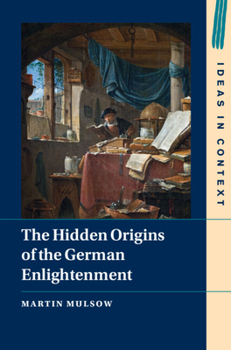The Hidden Origins of the German Enlightenment
(Book #2 in the Radikale Frühaufklärung in Deutschland 1680-1720 Series)
The early German Enlightenment is seen as a reform movement that broke free from traditional ties without falling into anti-Christian and extremist positions, on the basis of secular natural law, an anti-metaphysical epistemology, and new social ethics. But how did the works which were radical and critical of religion during this period come about? And how do they relate to the dominant 'moderate' Enlightenment? Martin Mulsow offers fresh and surprising...
Format:Hardcover
Language:English
ISBN:100924115X
ISBN13:9781009241151
Release Date:July 2023
Publisher:Cambridge University Press
Length:413 Pages
Weight:1.58 lbs.
Dimensions:0.9" x 6.0" x 9.0"
Customer Reviews
0 rating





